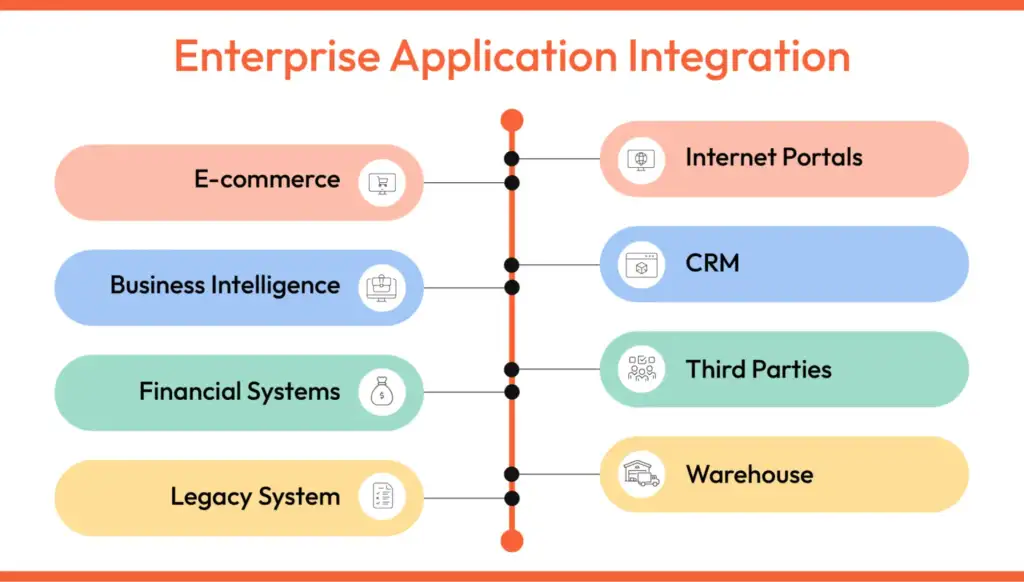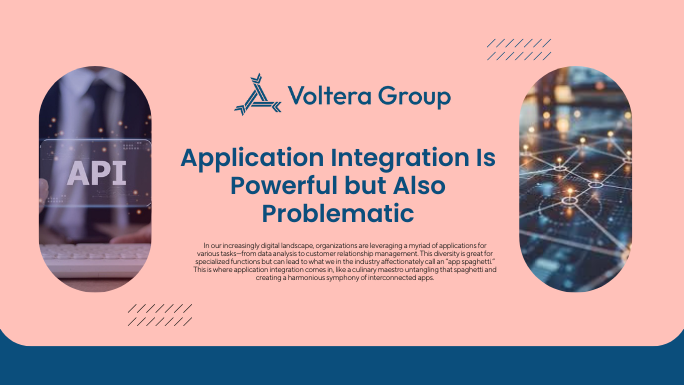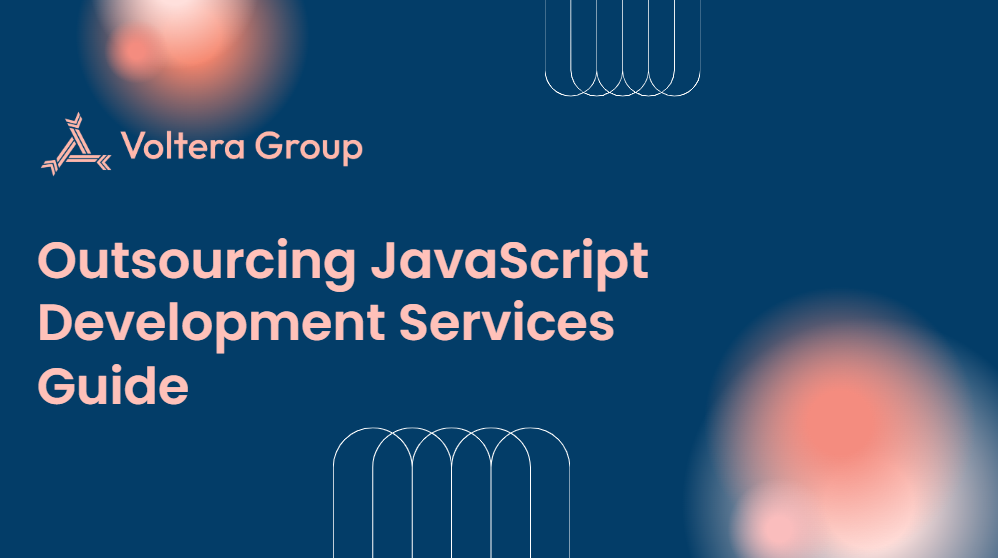In today’s increasingly digital landscape, organizations are leveraging a multitude of applications for various purposes—from data analysis to customer relationship management (CRM). While these diverse tools offer specialized functionality, they can also lead to what we refer to as “app spaghetti.” At Voltera Group, we understand the complexity of managing multiple systems, which is why application integration is a key part of our strategy to untangle this mess and create seamless, interconnected ecosystems.
By streamlining communication between systems, Voltera Group empowers businesses to make informed decisions faster and more efficiently. Our expertise in application integration ensures that different software systems not only work together seamlessly but also lead to greater business agility and competitive advantage in the digital age.

Application integration
Application integration allows different software systems to communicate and collaborate without friction. Think of it as a universal translator—allowing multiple platforms to speak the same language and work together effortlessly. At Voltera Group, we specialize in enabling these smooth interactions across disparate systems, ensuring real-time data exchange that leads to improved business operations.
Let’s consider an example: integrating your CRM with your Enterprise Resource Planning (ERP) system. Without integration, each system operates in isolation, limiting its impact. However, once integrated, sales data from the CRM can inform inventory decisions in the ERP, creating a harmonized workflow that leads to better decision-making across the organization.
At Voltera Group, we have extensive experience helping businesses integrate mission-critical systems, including CRMs, ERPs, eCommerce platforms, and inventory management systems, ensuring that data flows freely and without error.
Why Integrate?
There are several key reasons why application integration is crucial for modern businesses:
Increased Efficiency
Integrated applications eliminate manual data entry and reduce errors. For example, updates made in an inventory system can automatically reflect in an eCommerce platform, streamlining processes and improving accuracy. Voltera Group focuses on integrating systems that reduce redundancy and improve efficiency across the board.
Improved Decision-Making
By consolidating data across applications, businesses can quickly access the information they need to make informed decisions. Voltera Group helps companies build a unified view of their operations, allowing them to spot trends, resolve issues, and optimize their workflows in real-time.
Enhanced Customer Satisfaction
Seamless integration leads to better customer experiences. For instance, by integrating customer support systems with sales and marketing platforms, businesses can provide a personalized, consistent experience for their customers. Voltera Group has worked with numerous clients to create integrated customer journeys that enhance satisfaction and loyalty.
Leverage Commercial Alliances
By integrating external services such as payment gateways or third-party logistics, businesses can expand their capabilities without the need to build systems from scratch. Voltera Group helps businesses tap into these partnerships through seamless integration, enhancing their product offerings and operational efficiency.

Understanding the Complex Nature of Application Integration
Not all applications are created equal, which is where Voltera Group excels. We navigate the complexities of data compatibility, security, and system integration to ensure that applications work together seamlessly. Different vendors use different data formats (JSON, XML, etc.), and integrating them can be like finding a needle in a haystack.
For example, when integrating an eCommerce platform with an inventory management system, we often encounter challenges like format mismatches. Our developers at Voltera Group create middleware to translate between formats, ensuring smooth communication across all platforms.
Our expertise also extends to ensuring data security during integration. With more applications integrated, the risk of vulnerability increases, and we make sure to implement robust security measures to protect sensitive data during transmission.

Our Experience With Integration
Voltera Group employs various integration techniques based on client needs, system architecture, and complexity:
Point-to-Point Integration
This basic form of integration directly connects each application to others. While it’s useful for small systems, Voltera Group usually recommends more scalable solutions for larger businesses to avoid the limitations of point-to-point connections as systems grow.
Middleware Integration
Middleware sits between applications, facilitating communication by translating data into a format each system understands. Voltera Group specializes in middleware solutions, ensuring that different systems can communicate effectively, reducing complexity and enhancing scalability.
Service-Oriented Architecture (SOA)
SOA enables applications to communicate via services, promoting reusability and flexibility. At Voltera Group, we use SOA to ensure that different services across applications can be integrated into a seamless digital ecosystem.
Choosing the right integration technique is essential, and Voltera Group works closely with clients to identify the best approach based on their unique needs.





